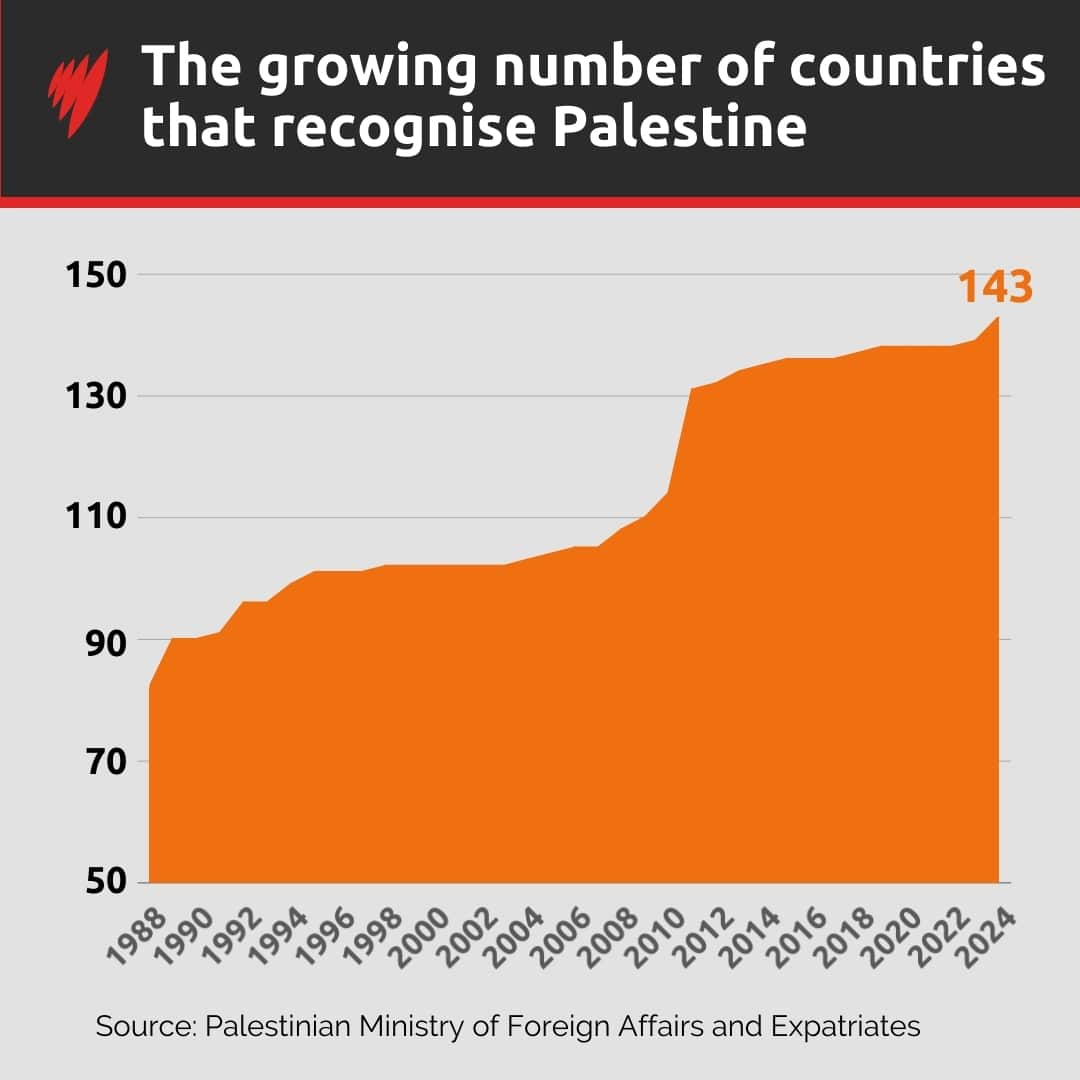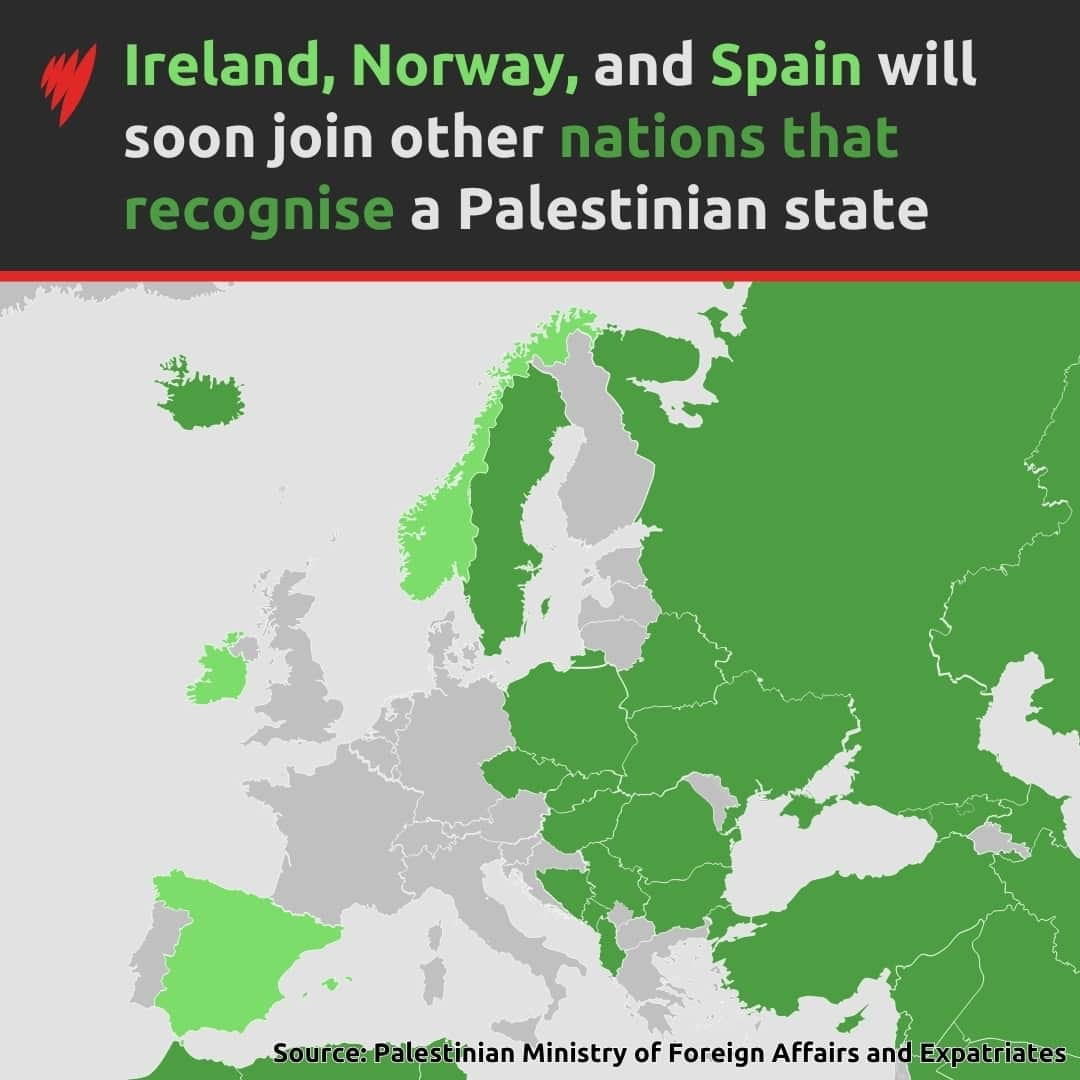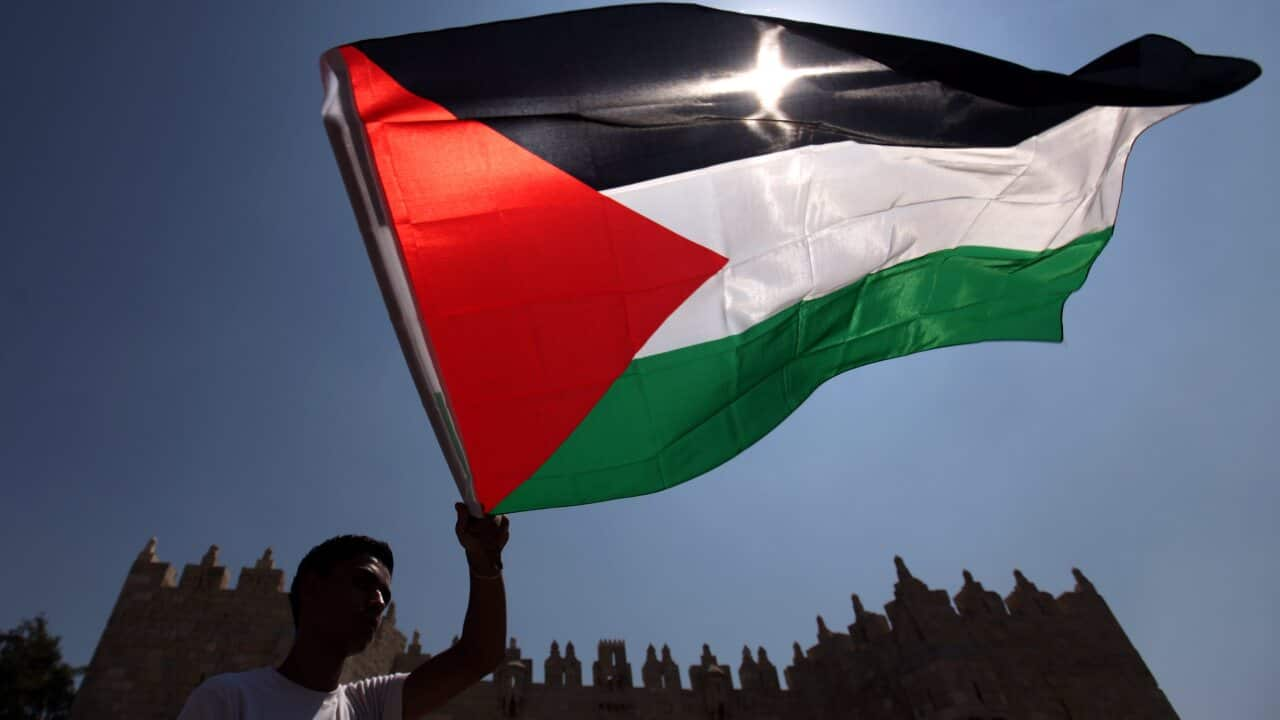Spain, Norway and Ireland have moved to recognise a Palestinian state amid growing pressure for a two-state solution with Israel.
Norwegian Prime Minister Jonas Gahr Støre hopes the symbolic move will help work toward and represents growing support for Palestinians in Western Europe.
“In the middle of a war, with tens of thousands of dead and injured, we must keep alive the only thing that can provide a safe home for both Israelis and Palestinians: two states that can live in peace with each other,” Støre told a press conference.
The decision of the three countries to recognise a Palestinian state on 28 May has infuriated Israel, which has recalled envoys to Norway and Ireland and is expected to do the same with its ambassador to Spain.
Israeli foreign minister Israel Katz described the move as giving “a gold medal to Hamas terrorists”, following between the militant group and Israel on 7 October.
The that recognise Palestine as a state and could mark a shift in Europe’s position.
Who first recognised a Palestinian state?
The state of Israel was established by the Israeli Declaration of Independence in 1948 and admitted as a UN member the following year. It is currently recognised by 165 member states.
In 1988, Palestinian leader Yasser Arafat unilaterally proclaimed an independent Palestinian state with Jerusalem as its capital during the first intifada (uprising).
He announced the two-state solution as a goal, with independent Israeli and Palestinian states existing side by side.
Algeria, Indonesia and Malaysia were among the first group of countries to recognise the state in 1988, with 82 countries in total — from India, Türkiye, and most of Africa to Eastern Europe — doing so by the end of that year.
In 1993 the Palestine Liberation Organisation and Israel signed the Oslo Accords — which were heralded as the start of peace talks.
The next wave of recognition from a host of South American countries including Argentina, Brazil, and Chile, came in late 2010 and early 2011, amid turbulence in the region.
A 2011 campaign to grant Palestine full UN membership failed.
However, in 2012 the UN General Assembly upgraded Palestinians to a “non-member observer state”, allowing them a seat but not a vote in the assembly.
And earlier this month, members of the UN General Assembly that recommended the UN Security Council “favourably” reconsider Palestinians gaining full membership.
Countries join revived push for Palestinian statehood in Europe
Sweden broke ranks and became the first Western European country to recognise Palestine in 2014, joining six of 27 EU member states.
The US, Britain, Australia and other Western countries have previously insisted that recognition comes as part of a negotiated peace settlement.
Israel’s bombardment of Gaza — which has left at least 35,000 people dead, according to the territory’s health ministry — in retaliation for Hamas’ killing of more than 1,170 people in Israel on 7 October, has renewed support in Europe for Palestinian statehood.
In March, Malta and Slovenia also expressed “readiness to recognise Palestine” when “the circumstances are right”.
Earlier this year, French President Emmanuel Macron said a similar move was “not a taboo” for France.
In 2024, the Bahamas, Trinidad and Tobago, Jamaica and Barbados recognised a Palestinian state.
Where does Australia stand?
Last month, Foreign Minister Penny Wong indicated a shift in the government’s position, before a formal peace process between Israel and Palestinian authorities is complete as long as Hamas had no role in its future.
Wong said a two-state solution was “the only hope to break the endless cycle of violence”, denying it rewarded Hamas for its actions against Israel.
She said the international community was considering the question of Palestinian statehood as a way of building momentum towards a two-state solution.
While the comments drew criticism from the Opposition, they reflected similar remarks by United Kingdom’s foreign secretary David Cameron.
He said recognition of an independent Palestinian state “can’t come at the start of the process, but it doesn’t have to be the very end of the process”.
With additional reporting by Agence France-Presse.


